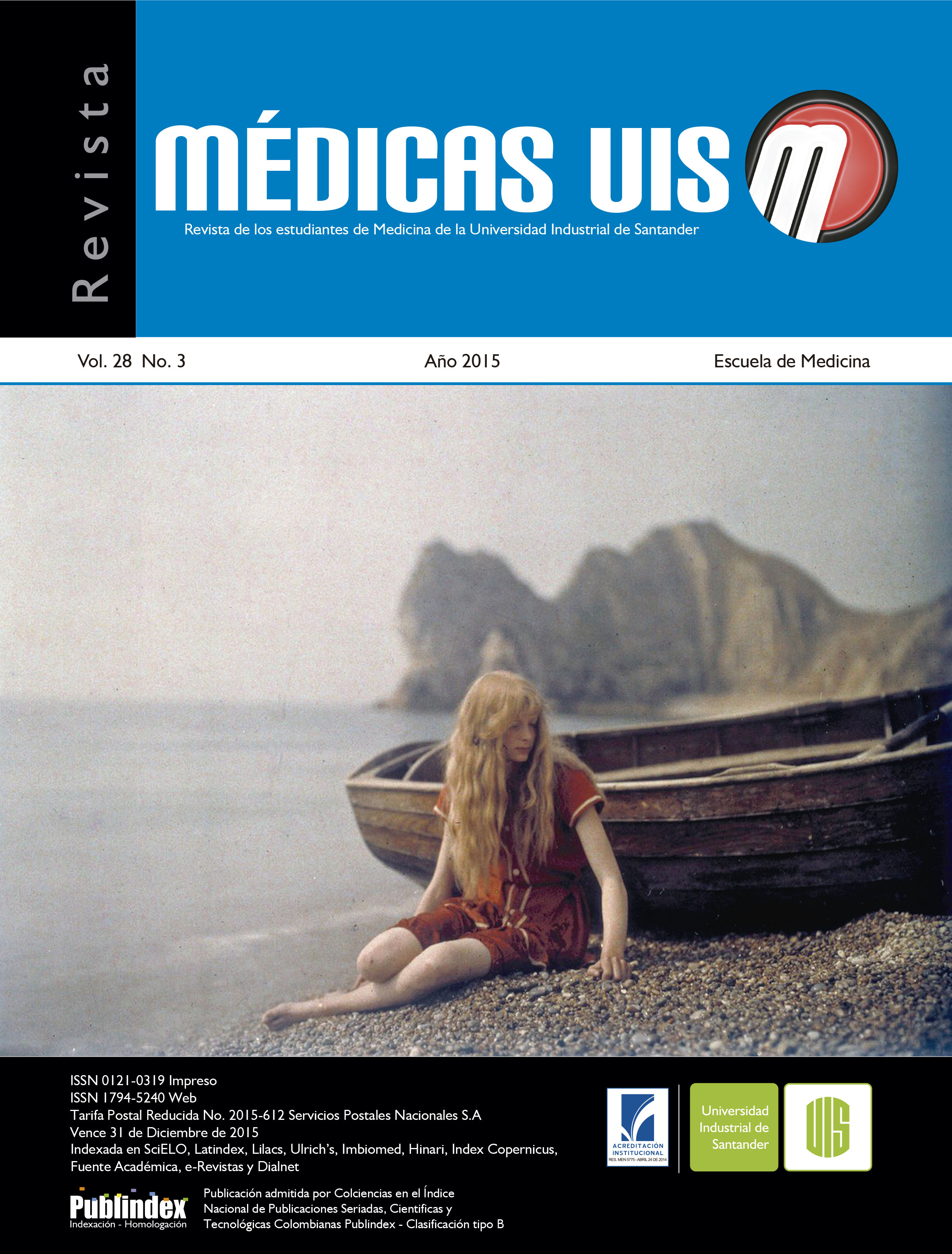Abstract
Introduction: Frequently they found fails in research projects and reports, and your study show continuing education needs. Objective: to identify errors in projects presented to Health Research Local Committee of the Instituto Mexicano del Seguro Social from Tabasco, Mexico, during 2009. Material and methods: Cross-sectional and descriptive design. Universe: 62 projects presented in 2009. Sample: no randomized for convenience. Inclusion criteria: projects presented and ruled in 2009 that and counted with peer review files. Variables: verdicts, reviewers, presentation errors, introduction errors, method errors, ethic methods. Information source: peer review files based on “Research projects evaluation guide” of the Instituto Mexicano del Seguro Social. Procedures: systematization of peer review information. Analysis: descriptive statistic. Software: Epi Info© version 3.3.2 for WindowsTM environment. Results: 50 research projects were ruled: 32 authorized (64%), 10 non-authorized (20%), 8 with modification and sending back to peer-review (16%). As the most frecuent errors, were found: incorrect syntax and spelling 62%, inadequate informed consent letter 45%, lack of appropriate foundation 36%, insufficient description of procedures 36%. Conclusions: The most frequents errors in the research projects presented to the Health Research Local Committee of the Instituto Mexicano del Seguro Social were about the ethical considerations and the redaction. For this reason to qualify in these aspects to health personnel of institution that carry out and advice on research works is required. MÉD UIS. 2015;28(3):317-25. Keywords: Research. Manuscripts, Medical. Ethics Committees. Research. Peer Review. ProtocolsReferences
Amato D, de Jesús Novales-Castro X. Feasibility of implementing a learning based problem solving and peer evaluation approach among medical students in Mexico. Gac Med Mex 2009;145(3):197-205.
Falconí E. La responsabilidad del Estado y las instituciones académicas en la investigación en salud pública. Rev Peru Med Exp Salud Publica 2007;24(4):440-1.
Molina-Ordóñez J, Huamaní C, Mayta-Tristán P. Apreciación estudiantil sobre la capacitación universitaria en investigación: Estudio preliminar. Rev Peru Med Exp Salud Publica 2008;25(3):325-9.
Díaz-Vélez C, Manrique-González LM, Galán-Rodas E, ApolayaSegura M. Conocimientos, actitudes y prácticas de investigación de los estudiantes de pregrado de Facultades de Medicina del Perú. Acta Med Per 2008;25(1):9-15.
Arroyo-Hernández H, De la Cruz W, Miranda-Soberon UE. Dificultades para el desarrollo de investigaciones en pregrado en una universidad pública de provincia, Perú. Rev Peru Med Exp Salud Publica 2008;25(4):448-9.
Enserink M. Scientific Publishing. Elseiver to editor: change controversial journal or resign. Science 2010;327(5971):1316.
Coll G, De la Figuera M, Vinyoles E, Albaladejo C, Dalfó A. Las dificultades de la investigación en atención primaria: A propósito de un estudio. Butlletí [serie en internet] 2009;27:9 [consultado, julio 2014]. Disponible en http://butlleti.camfic.org/Volum_26/AE_Dificultades_Investigacio_Estudi_CAST.aspx
Hauser SL, Johnston SC, Ferriero DM, Lowestein DH, Josephson SA, Messing RO, et al. Status report: the Annals in 2010. Ann Neurol. 2010;67(1):A5-12.
Platt JA. Remembering the past, an eye to the future. Oper Dent. 2010;35(1):1-2.
Liesegan TJ. Peer review should continue after publication. Am J Ophthalmol. 2010;149(3):359-60.
Schroter S, Black N, Evans S, Godlee F, Osorio L, Smith R. What errors do peer reviewers detect, and does training improve their ability to detect them?. J R Soc Med.2008;101:507-14.
Douglas G, Altman DSc. Poor-quality medical research. What Can Journals Do? JAMA.2005;287(21):2765-7.
Anaya R, Grover F, Centeno N, Godínez M. Ensayos clínicos sin significado estadístico. La importancia del error tipo II. Cirugía y Cirujanos 2008;76(3):271-5.
Reyes H, Palma J, Andresen M. Ethics in articles published in medical journals. 2007;135(4):529-33.
Persell SD, Dolan NC, Friesema EM, Thompson JA, Kaiser D, Baker DW. Frequency of inappropiate medical exceptions to quality measures. Ann Intern Med 2010;152(4):225-31.
Jung BC. Conflicts of interest, authorship, and disclousers in industry-related scientific publications. Mayo Clin Proc 2010;85(2):199.
Scientific fraud: action needed in China. Lancet 2010;375(9709):94.
Conclusion by exclusión. Nat Genet 2010;42(2):95.
Fernández P. Investigación en atención primaria. Cad Aten Primaria 2005;12:41-4.
Strazak A, Zarman Q, Pfeiffer K, Göbel G, Ulmer H. Statisticalerrors in medical research – a review of common pitfalls. Swiss Med Wkly 2007;137:44-9.
Ségalat L. System crash. EMBO 2010;11(2):86-9.
Texidor-Pellón R, Reyes-Miranda D. Algunas reflexiones acerca de los errores más frecuentes encontrados en textos médicos traducidos del idioma inglés. Educ Med Superior 2009;23(4):220-5.
Tseng I. General questions about Peer Review. J Mich Den Assoc 2009;91(12):20.
Nofziger AC, Naumburg EH, Davis BJ, Mooney CJ, Epstein RM. Impact to peer assessment on the professional development of medical students: a qualitative study. Acad Med 2010;85(1):140-7.
Freedman R. Learning to review. J Clin Psychiatry 2009;70(11):1599-600.
Wolff S, Robles F. Diez errores y máximas en la investigación social cualitativa. Articulando metodológicas comunes entre etnometodología y la teoría de sistemas. Sociedad Hoy 2006;11:111-25.
Bhagianadh D, Banderkar S, Ravindran D, Nikarge S. This is no low risk game: social science researchers reflect on their work. Indian J Med Ethics 2010;7(1):54-5.
Rakestraw E. A conflict of interest: why peer review committeesneed heightened scrutiny under federal antitrust law. J Leg Me 2009;30(4):563-78.
Robinson JJ. ‘Bad Science’ and publication ethics. Int Nurs Rev 2009;56(3):276.
Sengupta A. Fatal trials: clinical trials are killing people. Indian J Med Ethics 2009;6(3):118-9.
Silbergeld E. A question of ethics—publication policy and animals in research. Am J Bioeth 2009;9(12):61-2.
Hernández-Ávila M, Garrido-Latorre F, López-Moreno S. Diseño de estudios epidemiológicos. Salud Publica Mex. 2000;42(2):144-54.
Instituto Mexicano del Seguro Social. Guía para la evaluación de protocolos de investigación. En: Instituto Mexicano del Seguro Social. Procedimiento para la evaluación, registro, seguimiento y modificación de protocolos de investigación
en salud presentados ante el Comité Local de Investigación y Ética en Investigación en Salud [monografía en Internet]. México D.F., México: Instituto Mexicano del Seguro Social.2012 [consultado, abril 2015]. Disponible en http://www.imss.
gob.mx/sites/all/statics/profesionalesSalud/investigacionSalud/
normativaInst/2810-003-002_Anexo_4.pdf
Presidencia de la República (México). Reglamento de la Ley General de Salud en Materia de Investigación en Salud. México D.F., México: Diario Oficial de la Federación [serie en Internet]. 1982 [consultado, julio 2014]. Disponible en http://www.salud.gob.mx/unidades/cdi/nom/compi/rlgsmis.html
